Get yourself a free book about the cicadas of Brazil: Cigarras do Brasil. Visit this link and download the PDF!
The books was made by:
Vera L. Nunes
Tatiana P. Ruschel
Douglas B. H. Maccagnan
Paula C. Simões
Ruler C. Acosta
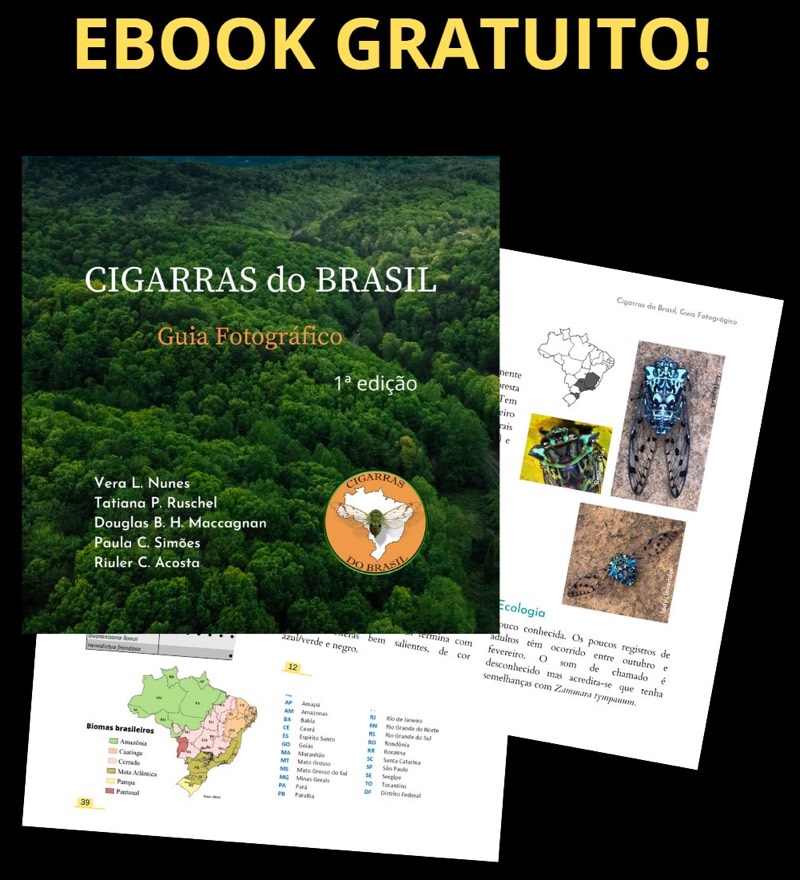
Locations where cicadas can be found, including countries and continents.
Get yourself a free book about the cicadas of Brazil: Cigarras do Brasil. Visit this link and download the PDF!
The books was made by:
Vera L. Nunes
Tatiana P. Ruschel
Douglas B. H. Maccagnan
Paula C. Simões
Ruler C. Acosta

This is an excellent video about different species of cicadas in Japan:
日本のセミ 鳴き声集『16種のセミ』【2022年バージョン】
The video was made by @SumatoragohanCicada.
I’m going to take some time and add time stamps and species names for English watchers.
Enjoy this video of a Meimuna kuroiwae by saku dainaman2 on YouTube:
Platypleura arabica, the Arabian Cicada, stamp from the State of Qatar:
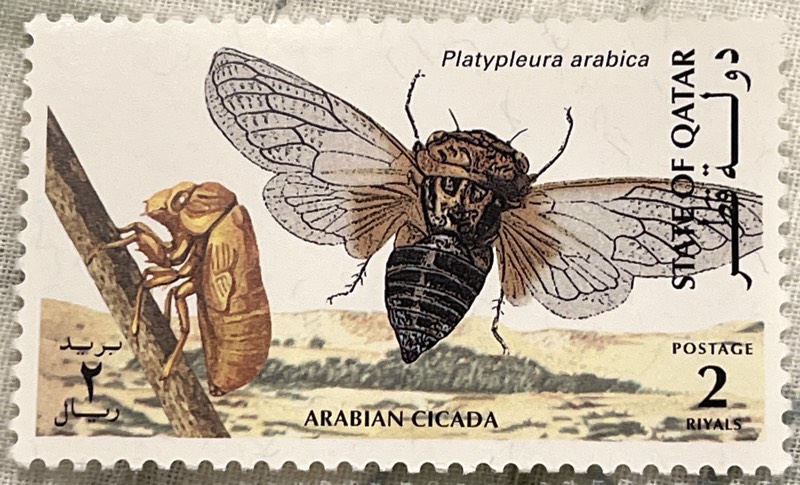
Sometimes you can judge a book by its cover. This one is fantastic! Searching for Cicadas by Lesley Gibbes (author) and Judy Watson (illustrator) tells the story of a grandparent and grandchild and their love of searching for and listing to cicadas. The book is set in Australia and features excellent illustrations of Australian species like Double Drummers, Floury Bakers, and Green Grocers. If you’re a library in the New South Wales area or a parent with a kid who loves cicadas, you should own this book. I live in the United States, and I had to import it. Worth every penny. The illustration is accurate and stylish and unique — a fantastic color palate.
The front cover:
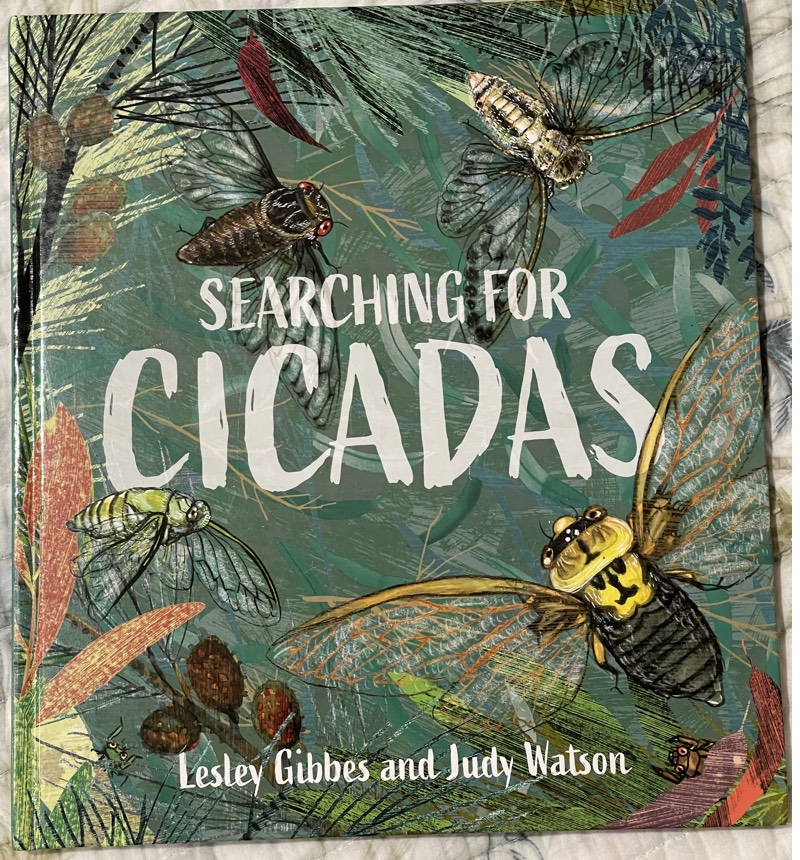
Inside illustrations:
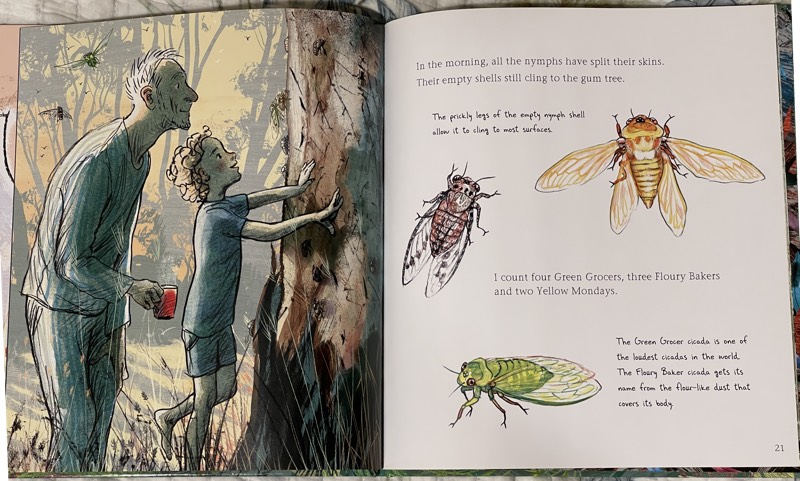
A Green Grocer (Cyclochila australasiae (Donovan, 1805)) cicada toy.
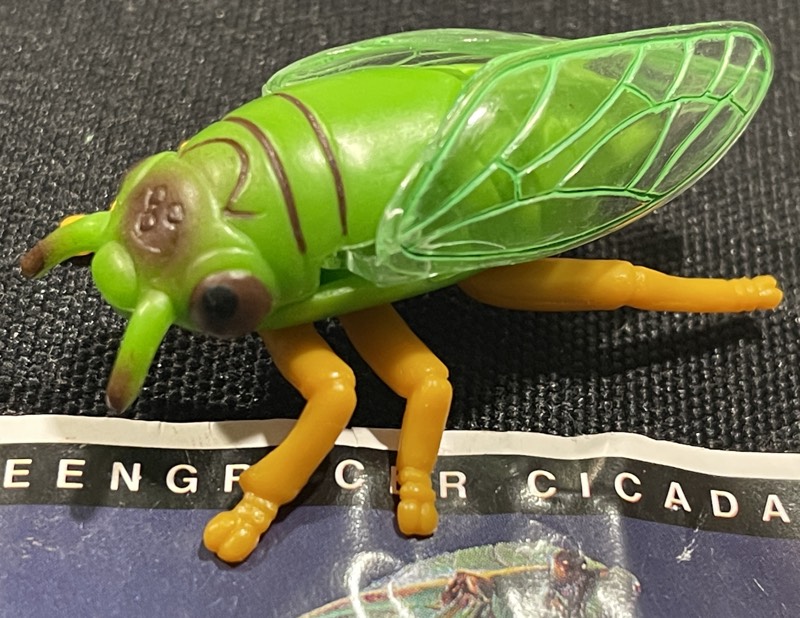
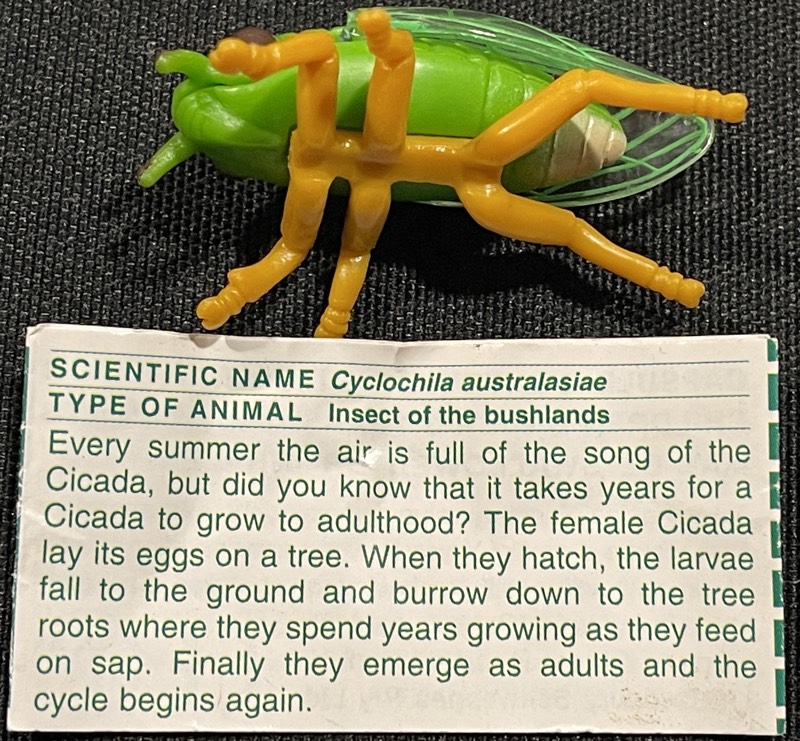
Green Grocers are found in eastern Australia.
A cicada stamp from South Korea. I think it’s a species of Platypleura.
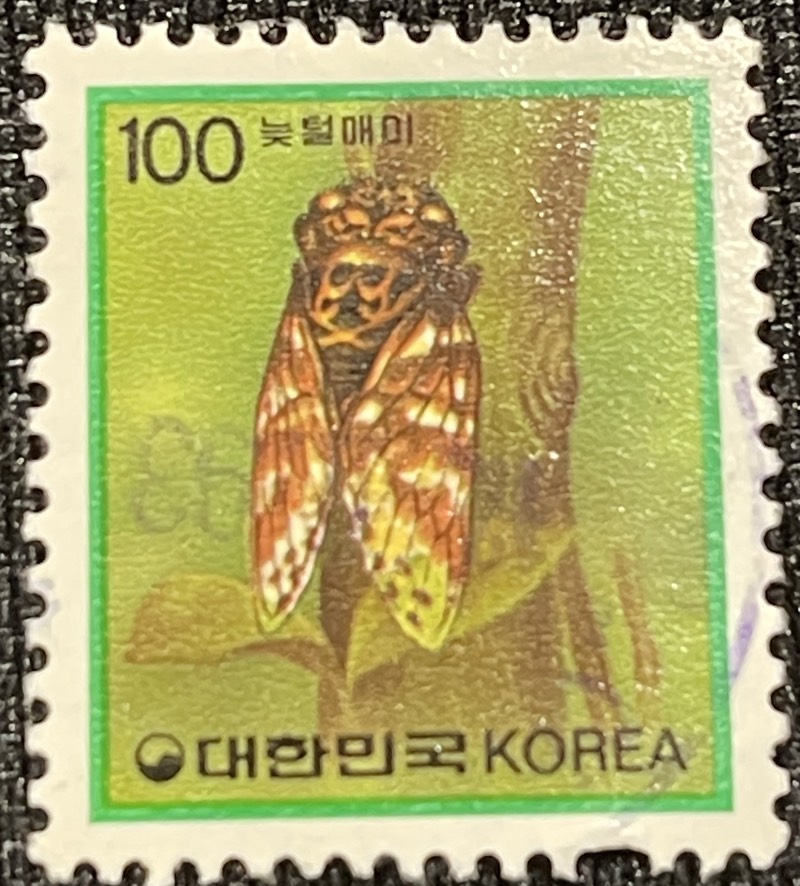
Looks like the post office of Australia has cicada themed stamps. As they say in the Pokemon world, “got to collect them all” (or something like that).
Update:
Here’s a photo of the actual stamps. I got them on eBay.
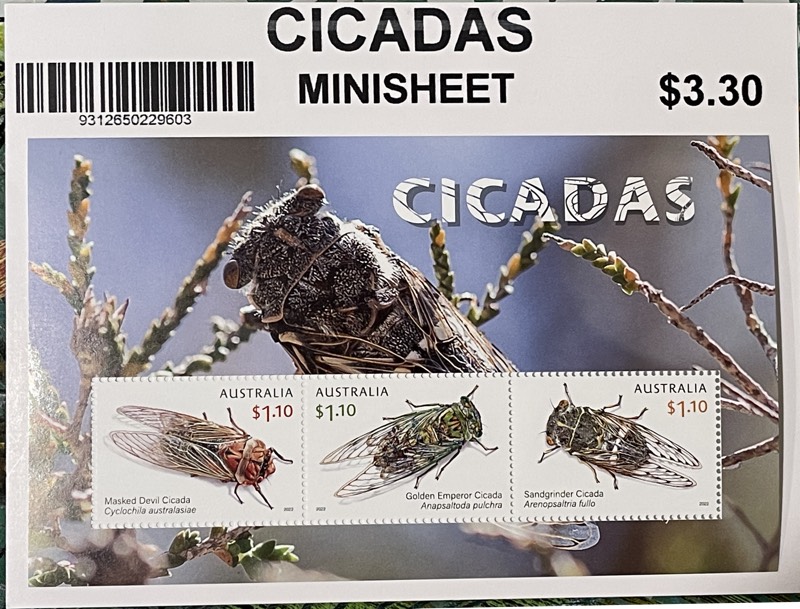
Masked Devil (Cyclochila australasiae) stamp:
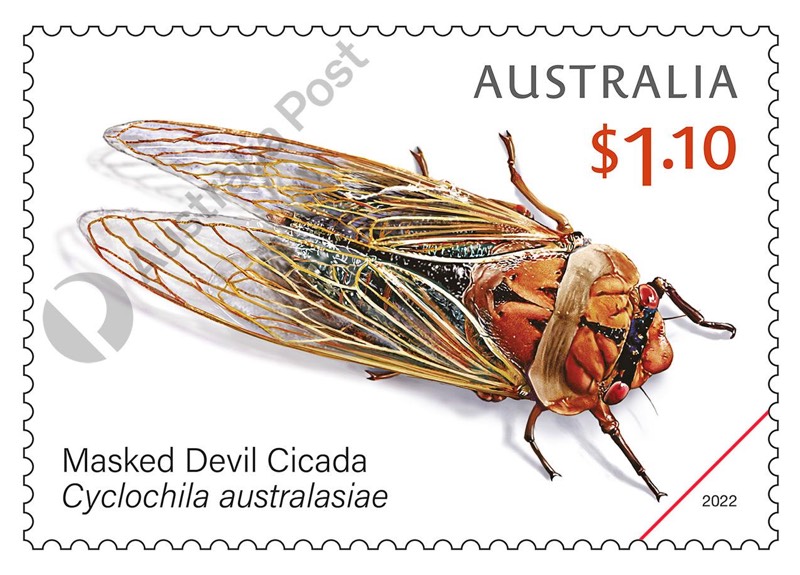
More about Masked Devil cicadas:
Golden Emperor (Anapsaltoda pulchra) stamp:
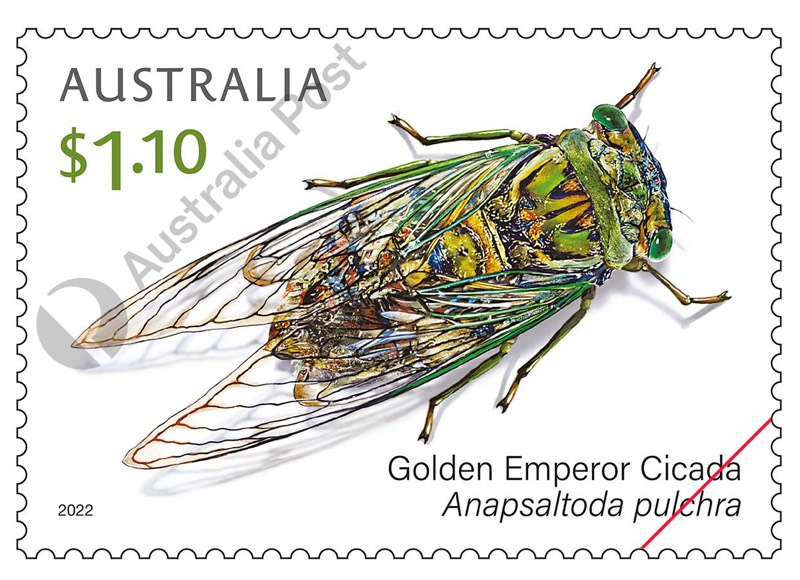
More about Golden Emperor cicadas:
Sandgrinder (Arenopsaltria fullo) stamp:
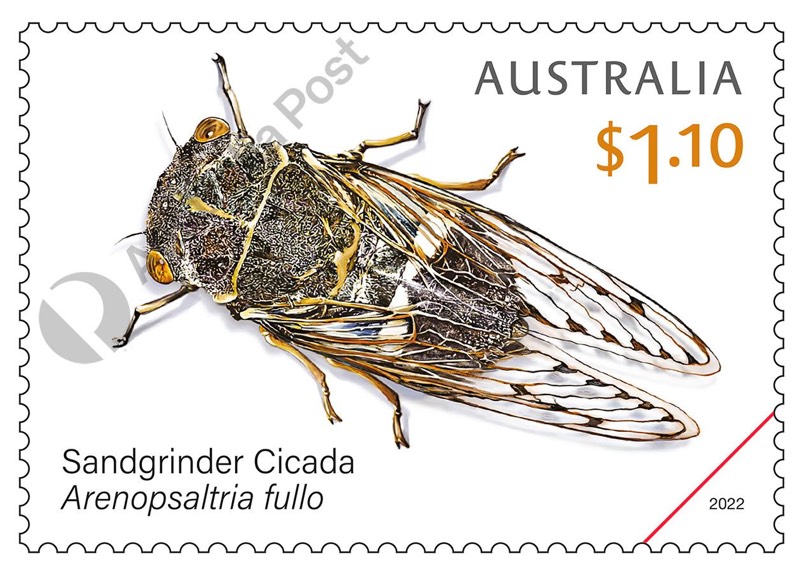
More Sandgrinder cicada action:
Chremistica ribhoi, aka Niangtasar and the World Cup Cicada, is emerging! Chremistica ribhoi is a periodical cicada that lives in India (state of Meghalaya) and emerges every four years. It is nicknamed the World Cup cicada because it emerges the same year as the World Cup soccer/football sports event.
Sudhanya Ray Hajong sent us the following photos and text describing the event:
A molted, teneral (soft) male:
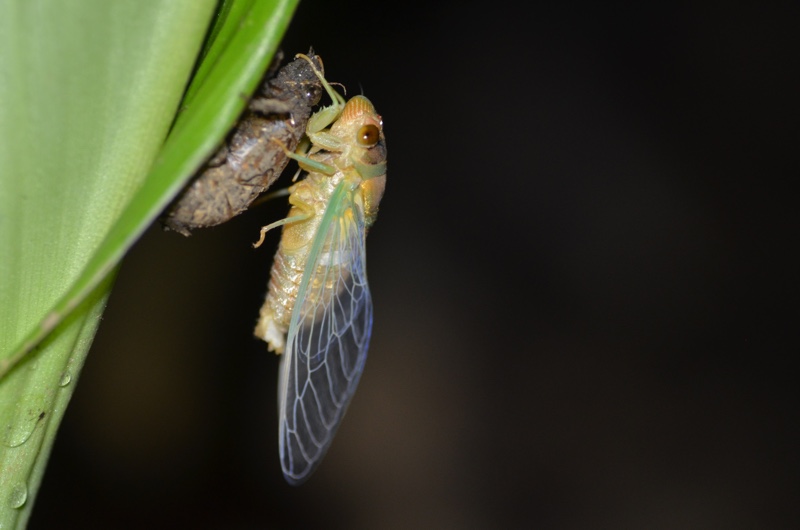
The worldcup cicada emergence May 2022
The four year long wait is over for the young and old of the villagers of Saiden village in the
northeastern Indian state of Meghalaya, and if you happen to be around you not fail to
notice the excitement among the young and old, men and women here in Saiden . It is
beginning of May and the World cup cicada or ‘Niangtaser’ as is called by the Bhoi
community has started emerging. The forest of Iewsier located on this a remote corner of
the world is suddenly buzzing with the calls of thousands of ‘Niangtaser’ or Chremistica
ribhoi Hajong & Yaakop, 2013.Come sunset, one will see young children, boys and girls, and even aged man and
women with a bag carried around their shoulder, a piece of bamboo cane hung by tread
around their neck and a torch in hand – they are conversing in excitement and flocking in
small groups proceeding on trails taking them inside the forest. The atmosphere is almost
festive and everyone is so friendly and smiling expecting eagerly to seek out and pick as
many ‘ Niangtaser’ as possible, to be brought back home for delicious preparation and to
be pickles and dried and kept for months to relish the unique taste that Mother nature has
bestowed.The nymphs with their powerful forelegs silently dig over ground in the stillness of the
night and one can see the still freshly emerged nymphs covered in soil crawling sluggishly
seeking anything upright to cling upward until they can secure themself on the surface with
their claws, the slow process then begins, with the splitting of the thoracic integument
along the mid dorsal line, the adult gradually pushes out of the shell until they are fully
outside the old exuviae, the wings which were crumpled slowly unfold and the now fully
emerged teneral adult with their fully spread-out wings appear as a beautiful greenish
ethereal glow under the soft light of our headlamps.Come daylight and the adults now in hundreds and thousands fly out resting in clusters on
tips of twigs and branches of the several bamboos, one would hear the incessant and
almost whistling crescendo of calls of the ‘Niangtaser’ with the rising heat of the sun if you
are just below these trees one would feel the rain like shower drizzling earthward from the
hundreds of adults peeing from the tree tops.This year though the fear of a fresh COVID resurgence had dampened the spirit of the
villagers of Siden , as no ‘Niangtaser’ Festival could be organised with much fanfare like
the previous emergence years.The Folklore of the Bhoi people – A sick old women who was transformed into the
peeing ‘Niangtsers’Long ago as the Bhoi Khasis of Siden village traditionally believed that, there lived an old
women who suddenly fell sick with a strange stomach ailment that made her to go
frequently to calls of nature for her frequent watery discharge. Fearing that her ailment
would spread among the villagers, the village elders finally decided that she was to taken
to the forest and kept separated alone in a bamboo thatch until she could get herself
cured. It is said that, when the villagers next morning went to check on her with food and
water, they were surprised to find they she had strangely vanished, but surprisingly they
found thousands of the cicadas everywhere on the branches of the trees and strangely all
of them were found to be discharging some kind of fluid from the rear of their abdomen.
They were thus lead to believe that the forest sprit feeling pity on her had transformed the
old sick women into thousands of the cicadas, and to this day the old women appear
around the forest of Iewsier in the form of thousands of ‘Niangtasers’ and even now she
still suffers from her stomach ailment and pass frequent watery discharges from the top of
trees.Will the ‘Niangtaser’ come again and again, after every four years, few village the elders
who narrates how once upon a time ‘Niangtaser were plentiful and widespread; and how
now things have changed and how forest were gone along with many areas from were
‘Niangtaser’ are no more found. They are saddened by this development and tells us that
the number of ‘Niangtaser’is dwindling, forest patches where large number of them
emerges are no longer there, in its place farmlands and houses had appeared, they fear it
is not far when the folklore and the ‘Niangtaser’ that is so relished will vanish and only
remain a folklore of the distant past. The unique gift of mother nature may no longer be
there if we do not check our greed and our want for more and more land and more
material wealth. Village elders like Bah Kret Sungkli caution us that if we do not part our
greedy ways we may have to lose this wonderful gift of mother nature.By Sudhanya Ray Hajong with able field assistance from my dear Rodeson Thangkiew,
who was inspired by ‘Niangtaser’ and to take up his PhD in cicadas.
A poem by Sudhanya Ray Hajong:
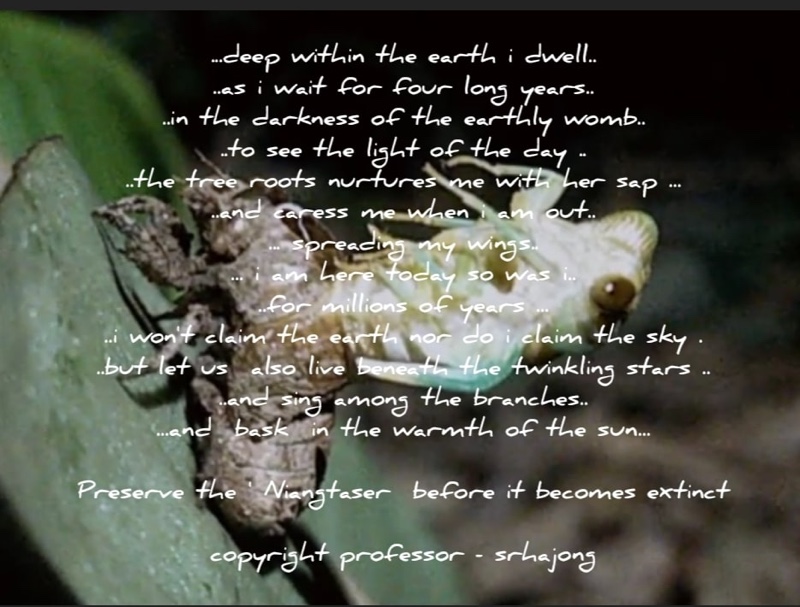
Two nymphs that have emerged from the ground:
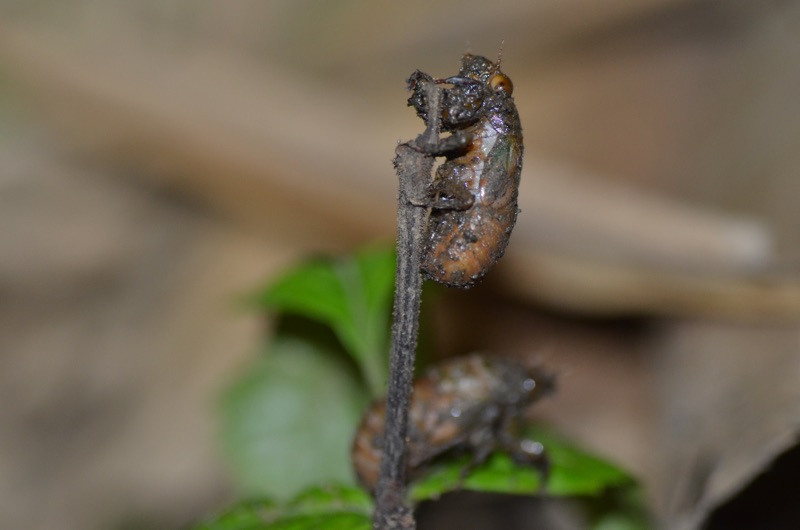
A molting adult:
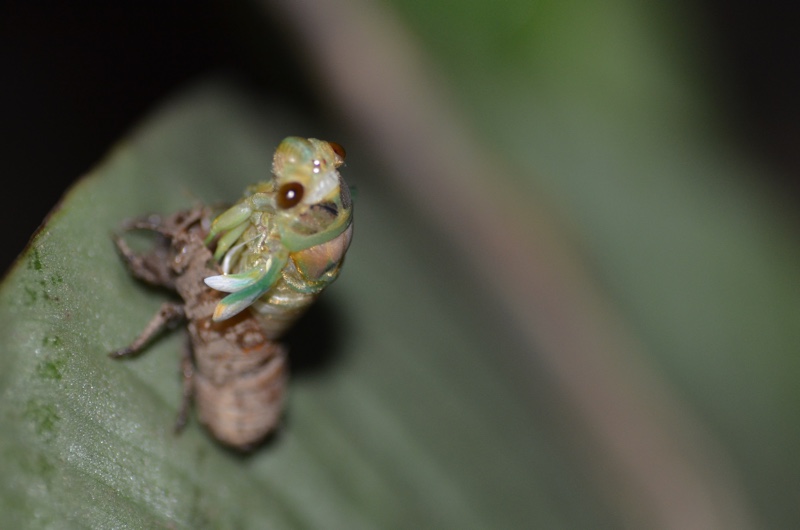
A molting adult:
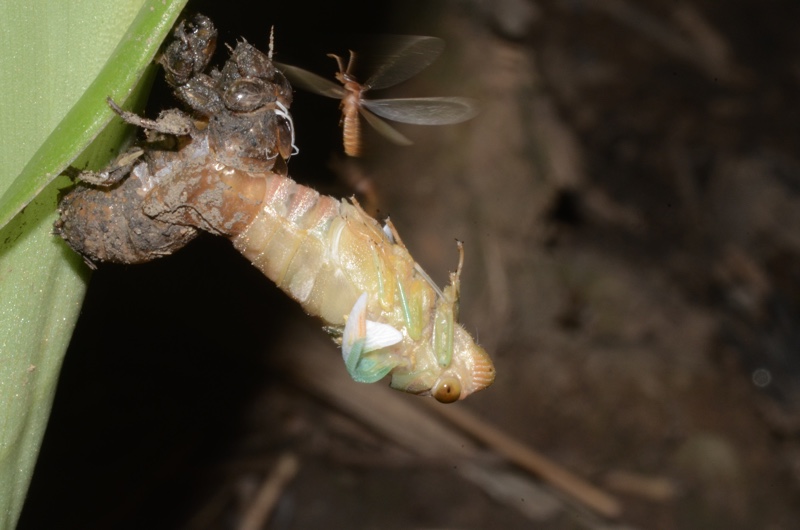
A molting adult:
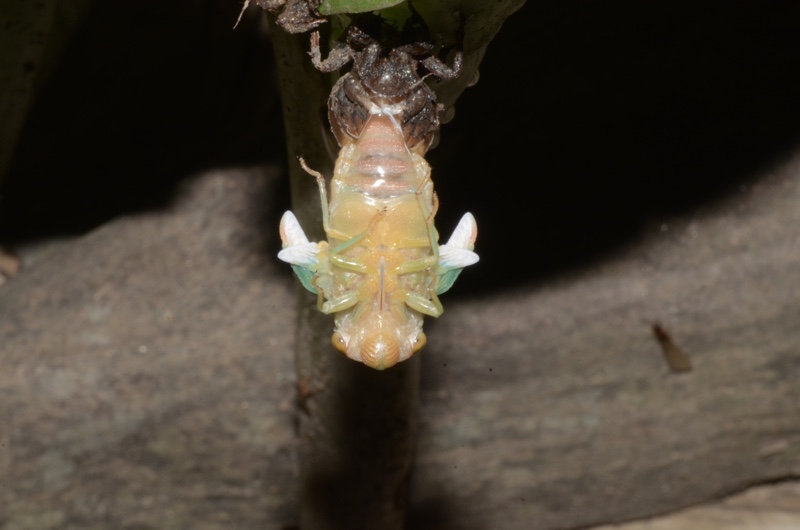
There’s also a brood of C. ribhoi that emerges during Leap-years.
Here’s a video of a Megatibicen auletes cicada singing at dusk in Brendan T Byrne State Park in New Jersey on July 15th, 2021.
* Note as of 2023 the name of this cicada has changed to Megatibicen grossus. You can also call it a Northern Dusk-Signing Cicada.